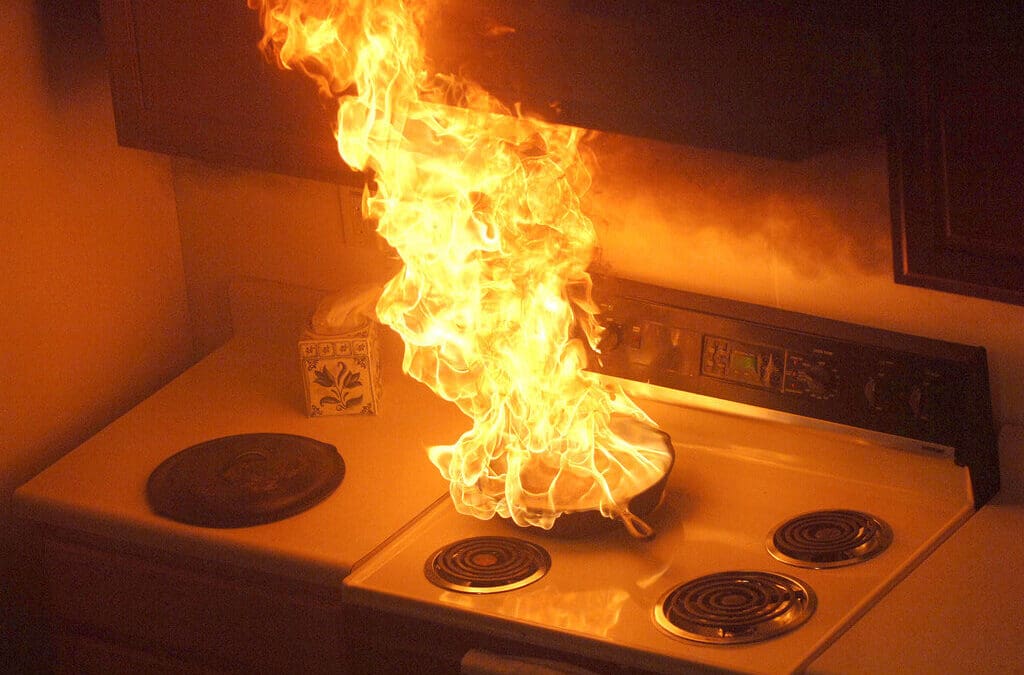When moving into a new home, many buyers focus on paint colors, kitchen finishes, or neighborhood features. While these details are exciting, it is equally important to think about safety essentials. These tools and precautions create the foundation for a secure, healthy home environment. Without them, homeowners may face risks that could lead to costly repairs, accidents, or even emergencies. Thinking about safety early means being proactive instead of reacting when something goes wrong.
Fire Prevention and Preparedness at Home
Fire prevention should be at the top of every homeowner’s checklist. Smoke detectors and carbon monoxide alarms are the first line of defense, and modern versions even come with smart features that alert you on your phone if something is wrong. Fire extinguishers should be placed in key areas like kitchens, garages, and near fireplaces, and every family member should know how to use them. Another overlooked aspect of fire safety is regular maintenance. Cleaning dryer vents, keeping heating systems serviced, and being careful with candles and space heaters all reduce risks. A well-thought-out fire escape plan, practiced with all household members, guarantees everyone knows what to do in an emergency.
Electrical Safety Essentials
Electricity is something most people take for granted, but without proper precautions, it could become a major hazard. Modern building codes in kitchens, bathrooms, and outdoor areas require GFCI outlets, which shut off power if water is detected. Extension cords and power strips should only be used temporarily, and homeowners should avoid plugging too many appliances into one outlet. Surge protectors are another key part of electrical safety essentials, keeping expensive electronics safe from lightning strikes or power surges. These small steps protect a home and reduce the chance of costly damage down the road.
Practical Ways to Improve Home Security
Every homeowner wants to feel safe, and security-focused safety essentials make that possible. Sturdy locks on all entry points, reinforced strike plates, and security bars for sliding doors create a strong first barrier. Outdoor lighting helps deter intruders while making it easier for family members to move around safely at night. Technology has made security more accessible, with smart doorbells, cameras, and motion sensors available at many price points. Even something as simple as trimming overgrown bushes near windows will improve home safety by removing hiding spots. Security is about layering protection; even small actions make a big difference.
Health Protection Through Safety Essentials
A safe home is not just about physical accidents, but also about protecting long-term health. Radon detectors are particularly important, since radon is a naturally occurring gas that can seep into homes and is a leading cause of lung cancer. Indoor air quality monitors will identify excess humidity, pollutants, or allergens, helping homeowners take corrective action before problems grow. Water quality is another critical area, especially for households that rely on wells. Installing filters or testing water regularly can prevent contamination issues.
Be Prepared for Emergencies
Life is unpredictable, and part of being a responsible homeowner is preparing for emergencies beyond daily risks. A well-stocked first-aid kit should include bandages, antiseptics, and supplies for minor injuries. Flashlights, candles, and backup power sources keep homes functional during outages, while bottled water and non-perishable food are invaluable during longer emergencies. Many families also create go-bags with essentials in case an evacuation becomes necessary. Storing important documents in waterproof containers and keeping an emergency contact list digitally and on paper provides additional security. These preparedness measures ensure the household is ready for the unexpected.
Long-Term Benefits of Safety Essentials
Safety essentials are an investment in peace of mind. A home with the right safety measures in place is less likely to experience serious emergencies, saving money on repairs, medical bills, or insurance claims. Many insurance providers recognize the value of safety and offer discounts for homes equipped with alarms, detectors, and security systems. Beyond the financial benefits, knowing your home is safe allows you to enjoy it fully, focus on family and community, and reduce daily worries.
FAQs
What are the most important safety essentials for a new homeowner?
The most critical starting points are smoke detectors, carbon monoxide alarms, fire extinguishers, locks, and a first-aid kit.
How often should I test or replace alarms and detectors?
Test alarms monthly, replace batteries annually, and replace the devices themselves every 7–10 years.
Are smart security systems necessary?
While not required, smart systems add convenience and extra protection, making them a popular upgrade for modern homeowners.
Do safety essentials add value to a home?
Yes. A home equipped with strong safety measures often appeals more to buyers and demonstrates responsible ownership.
The Property Inspection Pros provides home inspection services in the San Diego area. Contact us to schedule an inspection today!

